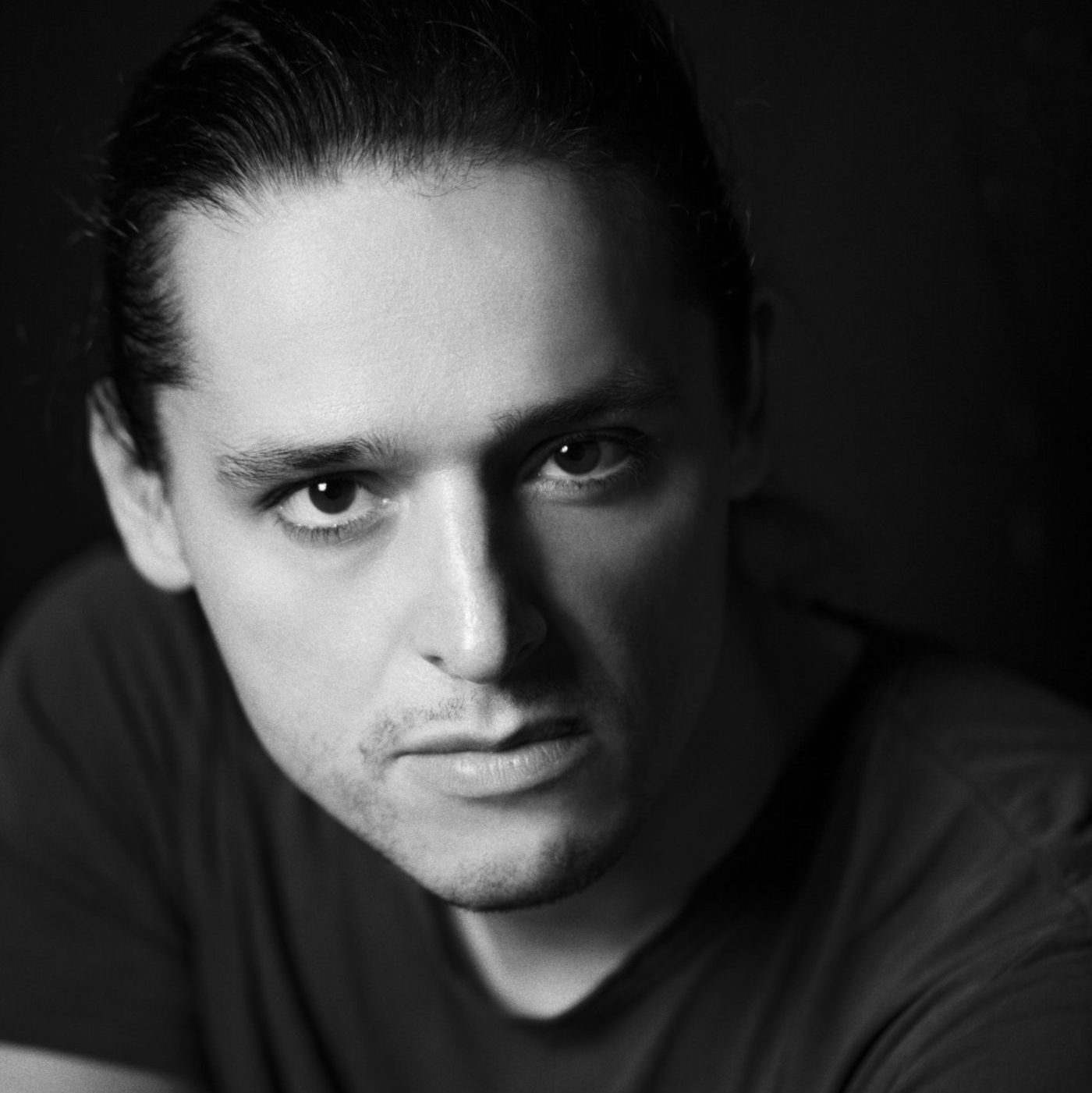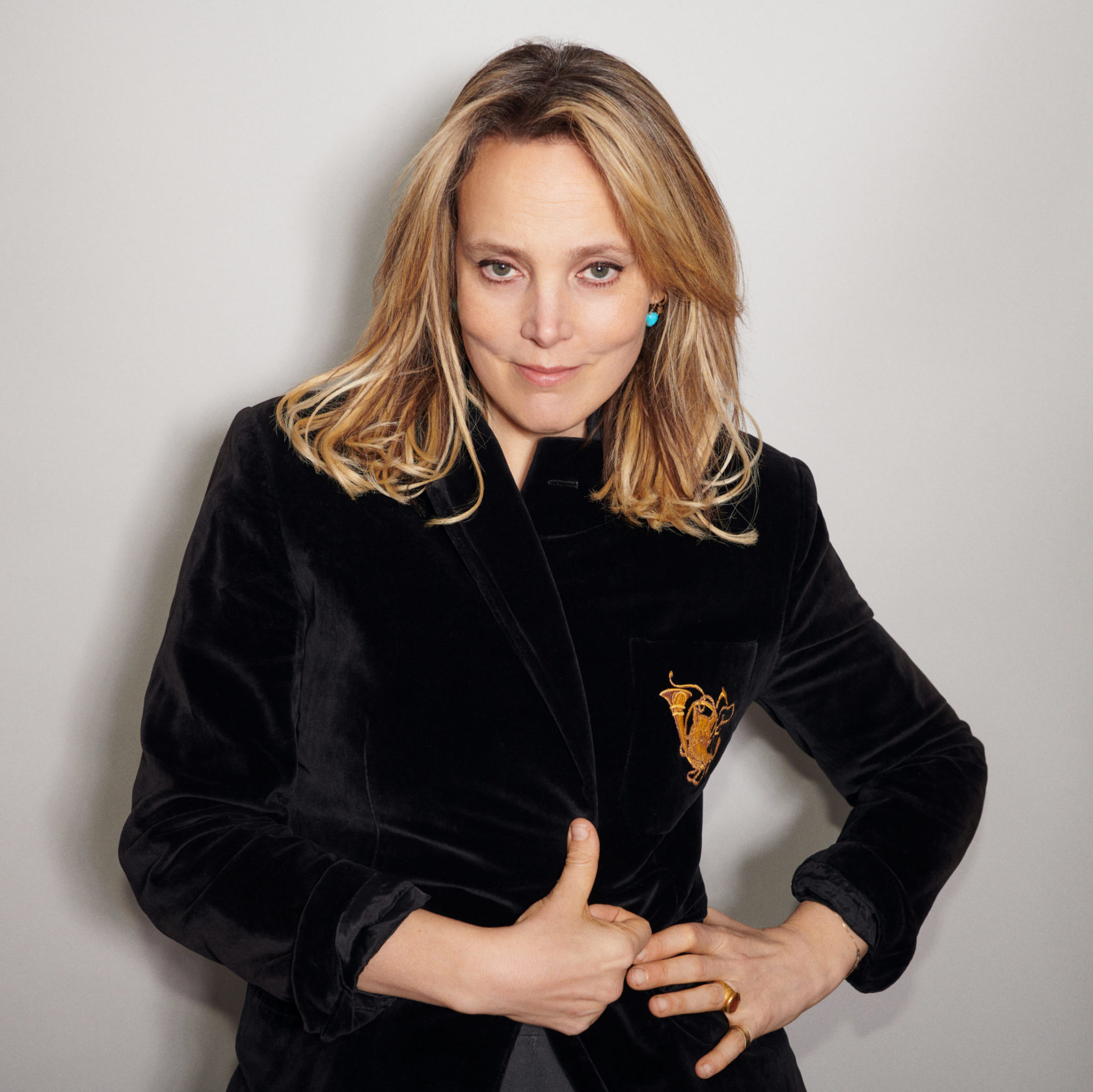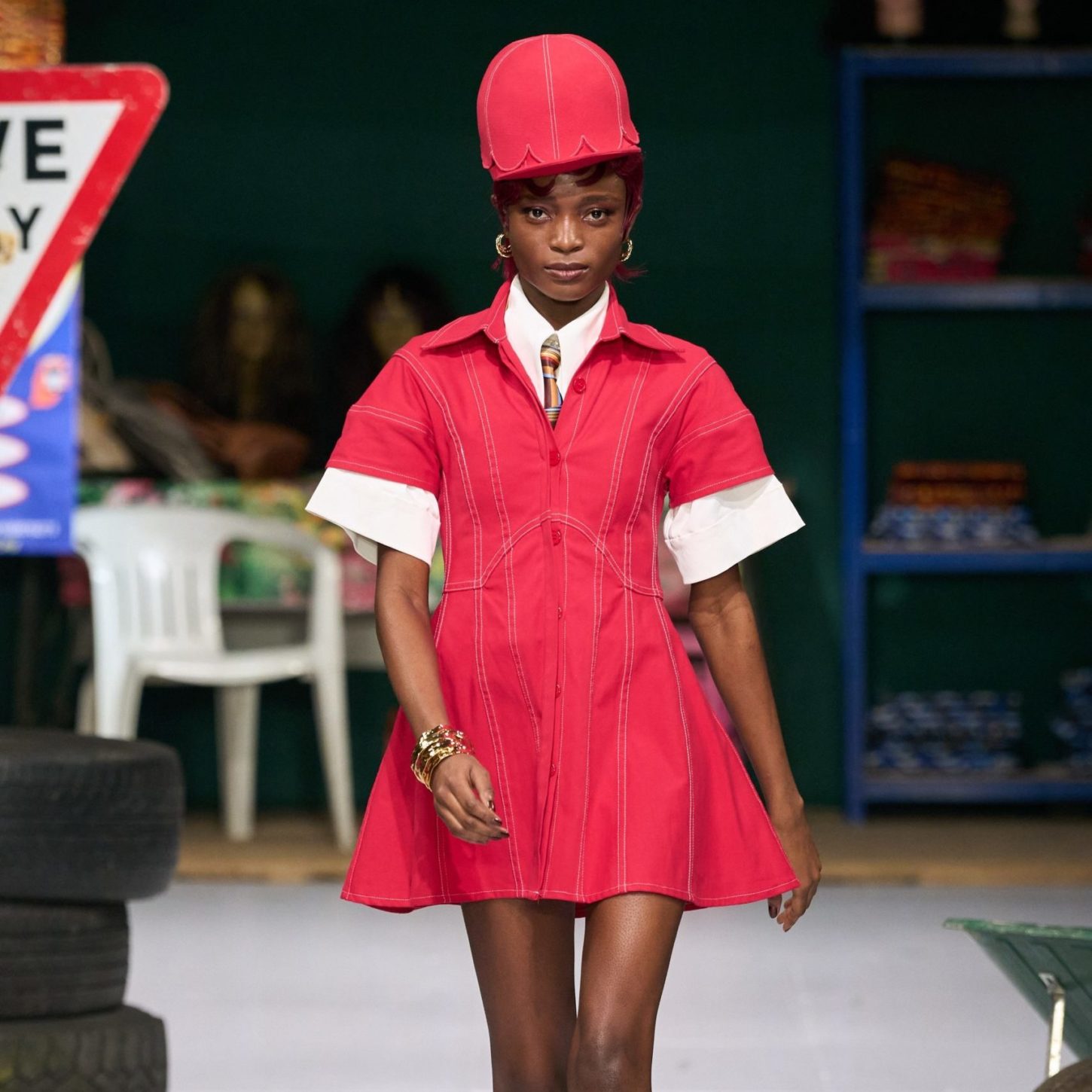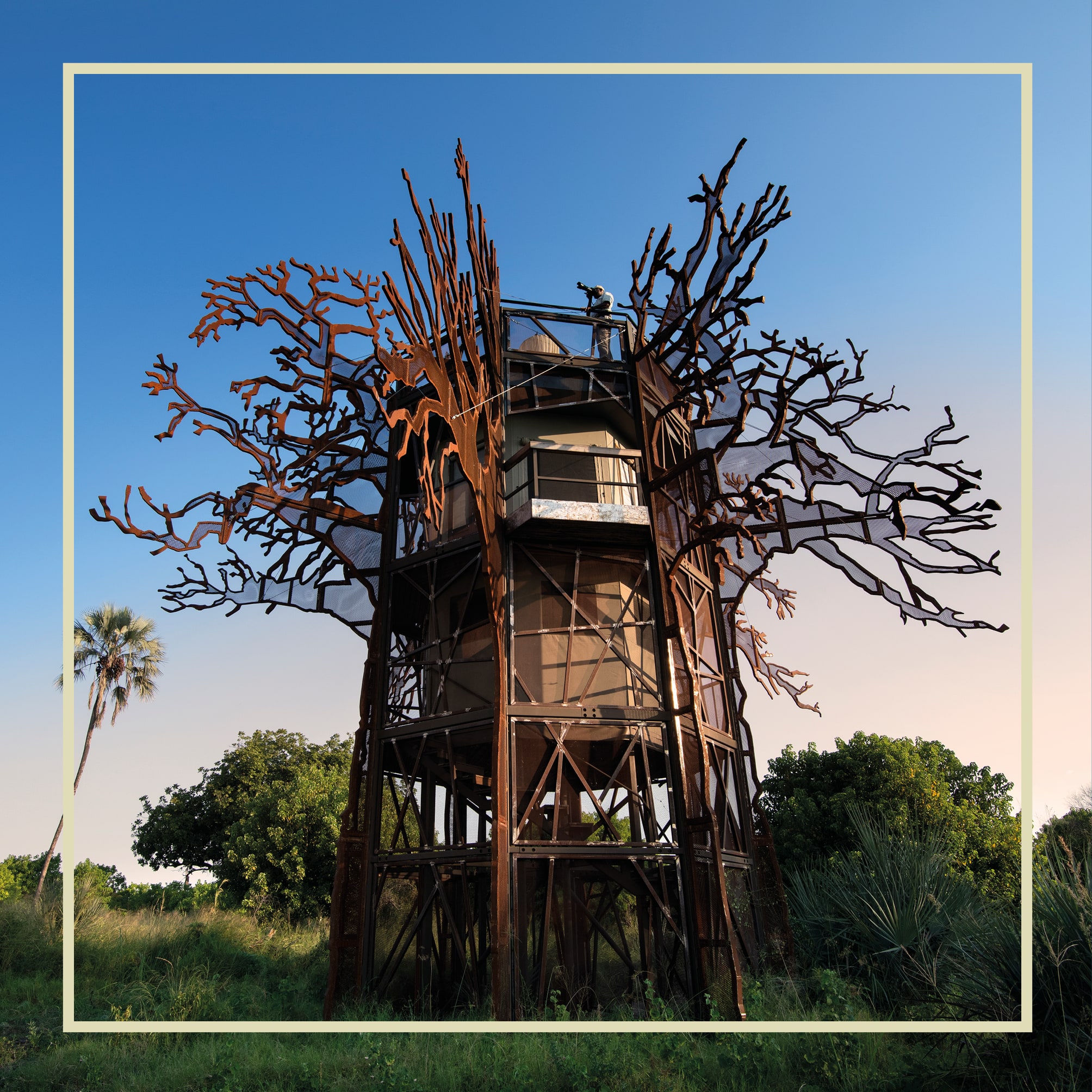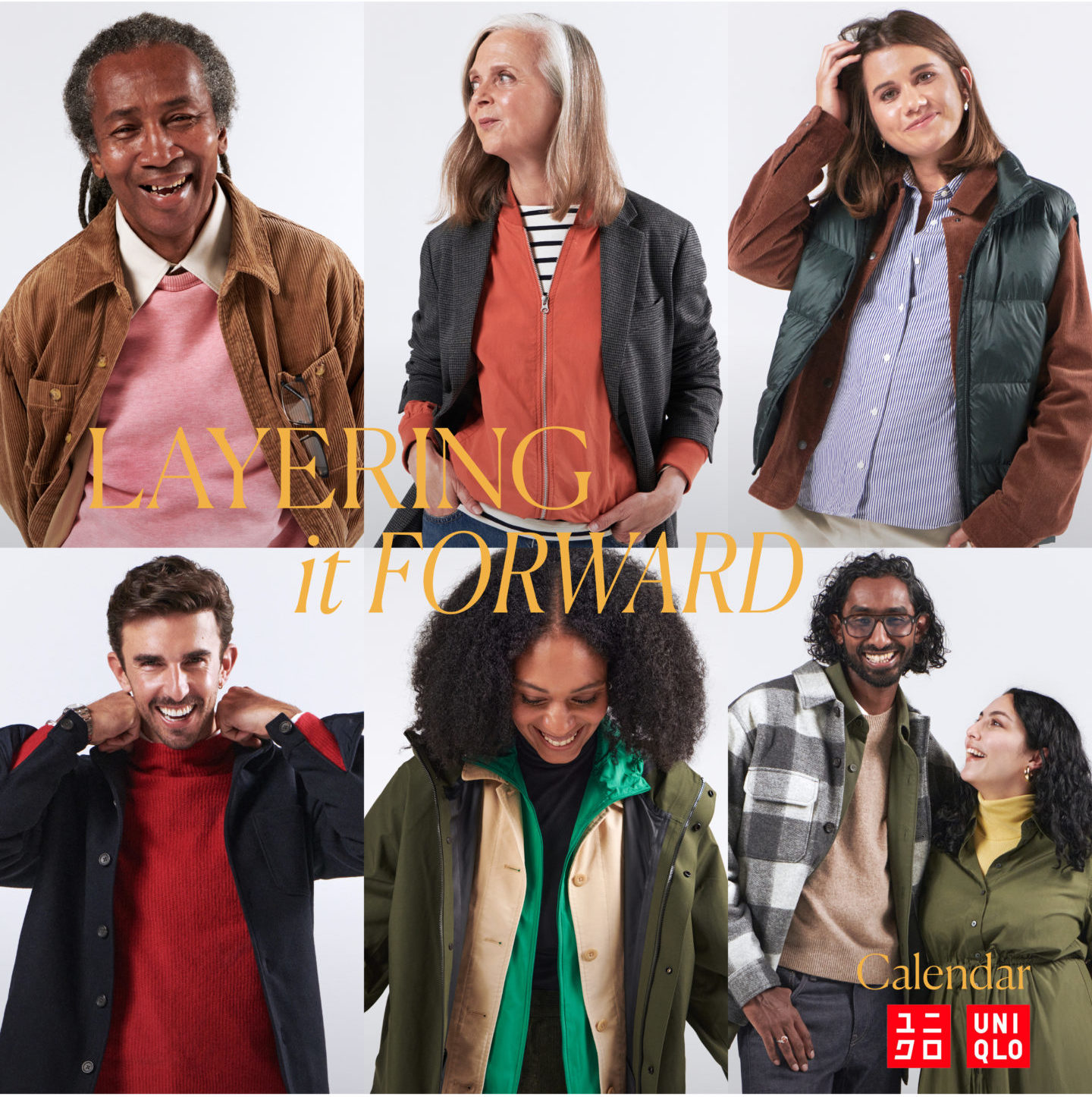January | Spotlight On
The Meaning Well
Former front-row regular Katie Ruensumran explains how the pandemic inspired her to start The Meaning Well and why she’s doing everything she can to change the industry for the better.
Emma SellsKatie Ruensumran’s path to becoming the founder of a responsible fashion label has not been how you might expect. You may recognise her – and her bold and brilliant sartorial flair – from her cult Insta account @katieismonster. That’s because, pre-pandemic, she was an influencer and front-row regular, working as a stylist and consultant and becoming ever-more disillusioned with the amount of waste and unused stock she saw being generated by the brands that she was partnering with. When the pandemic hit, she had an epiphany: the fashion system needed to drastically change, and if she could help that happen in even the smallest way, she would. So, she ploughed every penny of her savings into creating her new label, The Meaning Well. Based in a studio in East London, she recruited a talented band of pattern cutters, seamstresses and graphic designers who had lost their jobs due to the pandemic, and set about building a brand that would do things differently while making beautiful clothes and supporting local artisans, factories and talents alike.
“I used to work with lots of brands that don’t give a damn about sustainability – they just want to produce more and sell more, and I don’t think that’s right. I’m tired of the old system. I still love fashion, I love the fashion industry, but I think we need a change.”
Katie Ruensumran
Ruensumran has always loved fashion. Born in London but raised in Thailand, she spent her teenage years hoarding her pocket money to spend on imported, months-old issues of ID magazine and vintage T-shirts that she would cut apart and re-sew with added ruffles. Thanks to her years in the industry, until recently her wardrobe was packed out with incredible clothes by everyone from Simone Rocha to Comme des Garçons, many of which she had worn just once. “When I started to work on The Meaning Well, I looked at all my clothes and I just, I wanted to cry,” she says. “Oh my god, just how much money I’d spent! Back then, I used to work with a luxury brand, go to the show, then I’d buy the clothes and only wear them once. That just doesn’t make sense to me at all now. Runway clothes are so beautiful, of course; I love them but they’re not things that I can wear all the time. So, I wanted to make clothes that are still desirable but that you can wear everywhere – the idea is that you can wear the same piece to go to work or go and sit in the front row.”
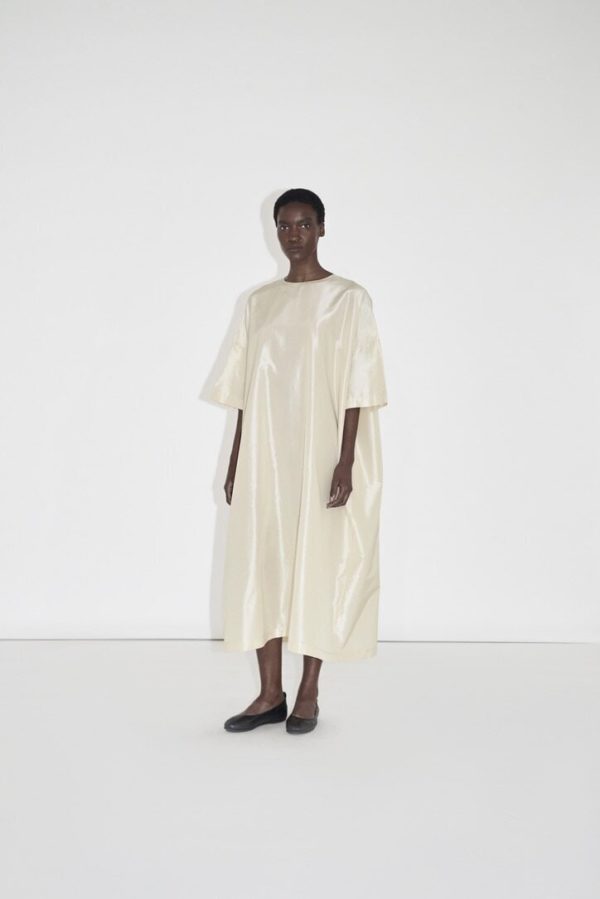
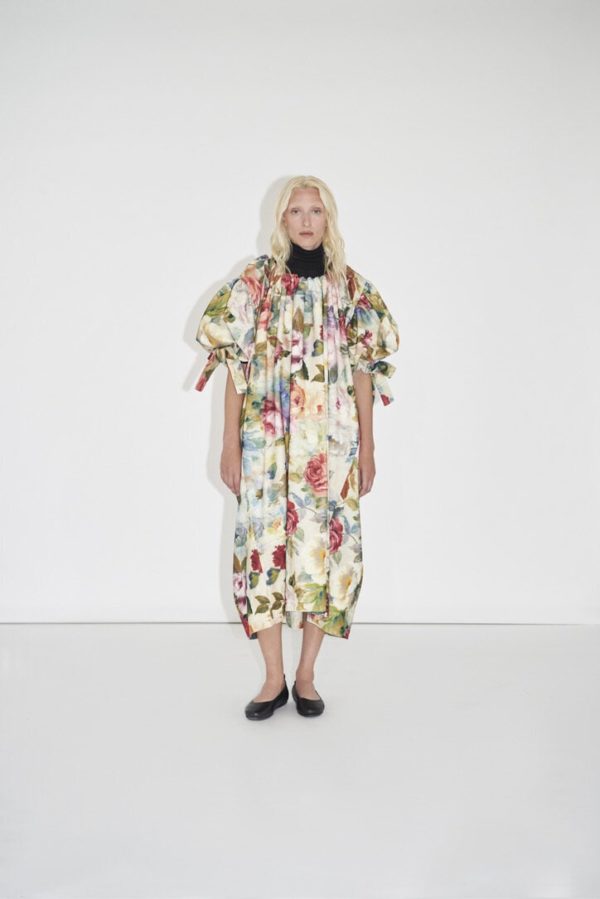
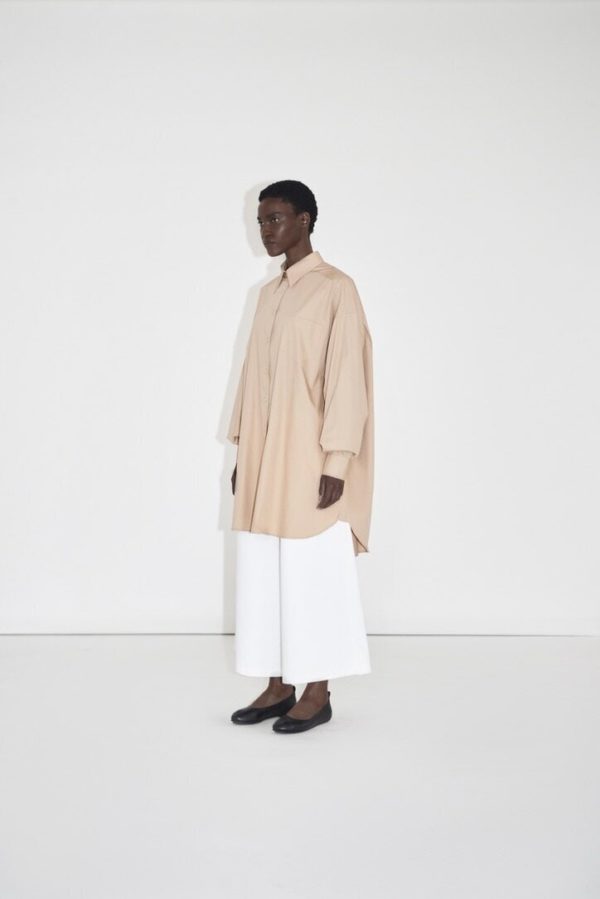
Images courtesy of The Meaning Well
Alongside some recycled and organic fabrics, the majority of The Meaning Well pieces are conjured from deadstock; Ruensumran contacted factories across the UK asking for samples of their remnant fabrics, delving into upholstery as well as more traditional fashion-focused textiles; one of the florals in her collections was previously used to whip up curtains and chair coverings for a now-defunct boutique hotel. The factories she works with are experts at their craft, whether it’s the one in Brisbane that has been conjuring corduroy and moleskine for more than 150 years, or the one in the Cotswolds whose team make exquisite buttons using traditional techniques and sustainable materials. The collections are seasonless and, to minimise waste as much as possible, every piece is made to order. But Ruensumran isn’t claiming that The Meaning Well is a totally responsible label – she’s just trying to make it the best that it can be. “I’m still learning about the right way to be a real sustainable brand – this is the beginning,” she says. “But I used to work with lots of brands that don’t give a damn about sustainability – they just want to produce more and sell more, and I don’t think that’s right. I’m tired of the old system. I still love fashion, I love the fashion industry, but I think we need a change.”
